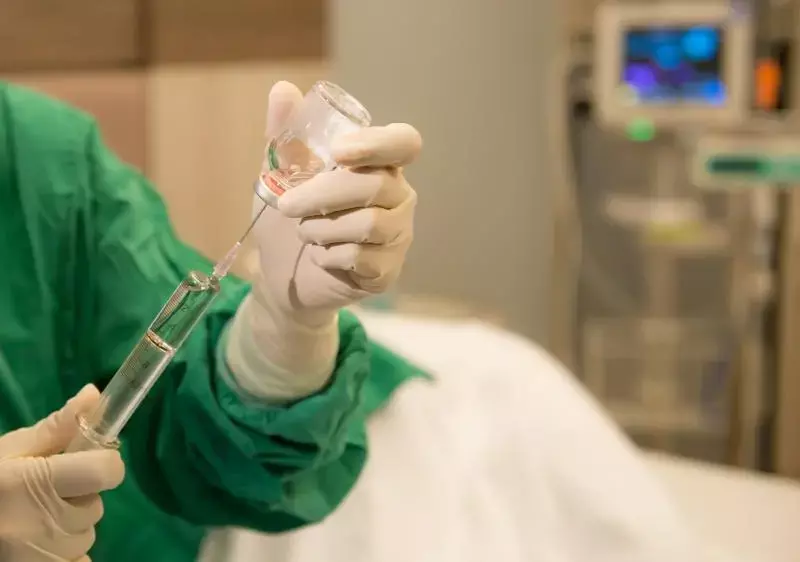- Home
- Medical news & Guidelines
- Anesthesiology
- Cardiology and CTVS
- Critical Care
- Dentistry
- Dermatology
- Diabetes and Endocrinology
- ENT
- Gastroenterology
- Medicine
- Nephrology
- Neurology
- Obstretics-Gynaecology
- Oncology
- Ophthalmology
- Orthopaedics
- Pediatrics-Neonatology
- Psychiatry
- Pulmonology
- Radiology
- Surgery
- Urology
- Laboratory Medicine
- Diet
- Nursing
- Paramedical
- Physiotherapy
- Health news
- Fact Check
- Bone Health Fact Check
- Brain Health Fact Check
- Cancer Related Fact Check
- Child Care Fact Check
- Dental and oral health fact check
- Diabetes and metabolic health fact check
- Diet and Nutrition Fact Check
- Eye and ENT Care Fact Check
- Fitness fact check
- Gut health fact check
- Heart health fact check
- Kidney health fact check
- Medical education fact check
- Men's health fact check
- Respiratory fact check
- Skin and hair care fact check
- Vaccine and Immunization fact check
- Women's health fact check
- AYUSH
- State News
- Andaman and Nicobar Islands
- Andhra Pradesh
- Arunachal Pradesh
- Assam
- Bihar
- Chandigarh
- Chattisgarh
- Dadra and Nagar Haveli
- Daman and Diu
- Delhi
- Goa
- Gujarat
- Haryana
- Himachal Pradesh
- Jammu & Kashmir
- Jharkhand
- Karnataka
- Kerala
- Ladakh
- Lakshadweep
- Madhya Pradesh
- Maharashtra
- Manipur
- Meghalaya
- Mizoram
- Nagaland
- Odisha
- Puducherry
- Punjab
- Rajasthan
- Sikkim
- Tamil Nadu
- Telangana
- Tripura
- Uttar Pradesh
- Uttrakhand
- West Bengal
- Medical Education
- Industry
Dexamethasone associated with significant Increased blood glucose levels after TKA

Dexamethasone is a commonly utilized glucocorticoid for perioperative pain management following primary TKA. The anti-inflammatory effects of dexamethasone attenuate the acute phase response associated with the tissue insult that occurs, leading to a reduction in the hyperinflammatory state which can be monitored directly with the measurement of acute-phase reactants measured on laboratory tests. The use of dexamethasone in the perioperative period has been shown to reduce the consumption of narcotic pain medication and antiemetic medication and ultimately has led to a shorter hospital length of stay.
But, Dexamethasone has the potential to cause a transient increase in blood glucose levels. Recent evidence has suggested the potential for a linearly increased risk of periprosthetic joint infection beginning at blood glucose levels of >=115 mg/dL and an optimal cutoff of 137 mg/dL.
A.J. Volkmar et al conducted a study at Vanderbilt University Medical Center, Department of Orthopaedic Surgery, Nashville, TN, USA. It has been published in ‘Arthroplasty Today’ journal.
All primary total knee arthroplasties performed at author’s institution were identified and retrospectively reviewed. Patient demographics, dexamethasone administration, and perioperative glucose levels were recorded. Outcomes included POD1 glucose levels, infection rate, and all-cause reoperations and revisions.
Key findings of the study were:
• A total of 5353 TKAs were identified, performed by 18 surgeons over the study period. Four of the surgeons accounted for 93.7% of the TKAs.
• The average POD1 glucose level for the entire cohort (n = 5353) was 138.7 mg/dL.
• The percentage of patients with a glucose level of 137 mg/dL or higher was significantly greater in patients that received dexamethasone (55.2% vs 37.7%; P < .0001).
• Significantly higher glucose levels were seen with dexamethasone administration in both diabetic (187.7 vs 173.4 mg/dL; P < .0001) and nondiabetic patients (137.7 vs 128.0 mg/dL; P < .0001).
• Dexamethasone use was associated with a non statistically significant increase in infection rates (1.7% vs 1.0%; P = .177).
The authors concluded that - "Administration of dexamethasone is associated with a statistically significant increase in POD1 glucose levels, regardless of diabetic status. Dexamethasone use should continue to be closely monitored given the potential risks of elevated postoperative glucose levels and the potential for periprosthetic infection."
Further reading:
Dexamethasone Is Associated With a Statistically Significant Increase in Postoperative Blood Glucose Levels Following Primary Total Knee Arthroplasty
A.J. Volkmar et al
Arthroplasty Today 19 (2023) 101076
https://doi.org/10.1016/j.artd.2022.101076
MBBS, Dip. Ortho, DNB ortho, MNAMS
Dr Supreeth D R (MBBS, Dip. Ortho, DNB ortho, MNAMS) is a practicing orthopedician with interest in medical research and publishing articles. He completed MBBS from mysore medical college, dip ortho from Trivandrum medical college and sec. DNB from Manipal Hospital, Bengaluru. He has expirence of 7years in the field of orthopedics. He has presented scientific papers & posters in various state, national and international conferences. His interest in writing articles lead the way to join medical dialogues. He can be contacted at editorial@medicaldialogues.in.
Dr Kamal Kant Kohli-MBBS, DTCD- a chest specialist with more than 30 years of practice and a flair for writing clinical articles, Dr Kamal Kant Kohli joined Medical Dialogues as a Chief Editor of Medical News. Besides writing articles, as an editor, he proofreads and verifies all the medical content published on Medical Dialogues including those coming from journals, studies,medical conferences,guidelines etc. Email: drkohli@medicaldialogues.in. Contact no. 011-43720751


